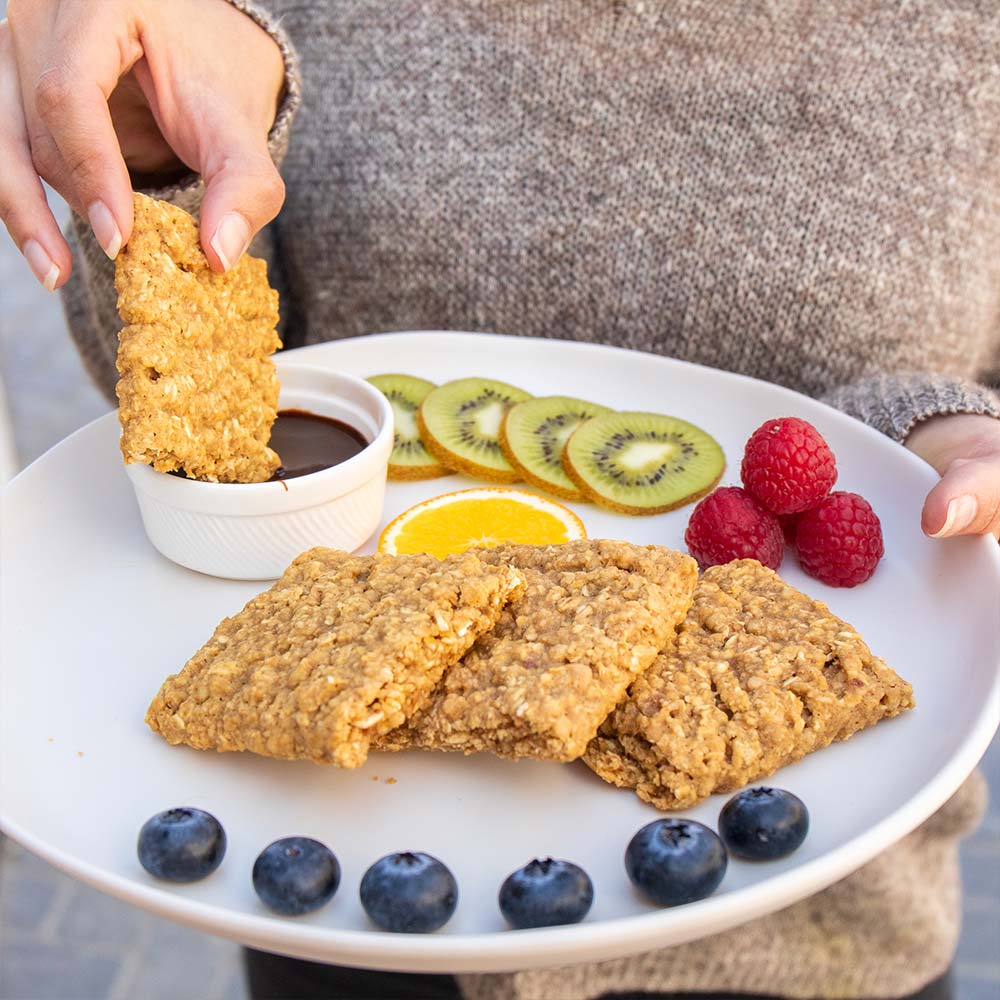Muscle mass gain is not only about weight training and
consuming proteins but also about what you eat and how much of it you consume.
Whether you are an amateur bodybuilder or just desire muscles that are well
toned, nutrition is very crucial, particularly planning on the kind of meals
you are going to take. For this reason, nutritional professionals state that
nutrition is 70-80% of the actual construction of your muscles. It has been
established that selecting the right food targeted to the UAE's cultural
specifications is quite difficult at times. However, it is not impossible to
come up with the best
muscle-gain meal plan in UAE where your requirements will be met.
A proper meal plan is like mapping your way to get to the
desired muscle mass. When you are choosing your meals, eating at the proper
time, and getting the nutrients that your body needs you are predisposing
yourself for success. In this article, you will learn how to properly plan your
weekly meals for muscle gain with effective, realistic ideas that can be
implemented by any person.
Understanding the Basics of Muscle Growth
To better prepare for meal planning, readers must first
familiarize themselves with how the muscle-building process occurs. Muscle
hypertrophy is a process where muscle grows in size results from pressure
exerted on muscles for example through weights and then getting enough
nutrients and rest to help rebuild muscles.
Two main factors influence muscle growth:
1. Protein Synthesis: This is the time when your body utilizes protein to reconstruct and produce muscles. To enhance the accumulation of proteins within the muscles, one has to ensure that he or she takes the required amount of high-quality proteins within a given period.
2. Caloric Surplus: Muscle build-up can only be experienced
if the body is supplied with energy. This simply means that you must take foods
with more energy than your body expends in a given day to feed the muscles.
Muscle-building meal plan should therefore ensure enough
protein intake, proper fats and carbohydrates and a way to ensure caloric
intake is above basal metabolism.
The Importance of Protein in Muscle Growth
Protein is commonly known in sporting circles as the
building block of muscles and for very good reason too. It comes with amino
acids that your body cannot synthesize and therefore: Important for muscle
repair and growth. According to researchers, a moderate amount of protein as a
ratio of 1.6 to 2.2 grams per kilogram of body weight a day would be
appropriate for bodybuilding. For example, if the person’s weight is 70
kilograms, then the necessary protein daily intake ranges from 112 to 154
grams.
High-quality protein-containing foods include lean meat such
as chicken, fish, fish, eggs, and dairy products and plant protein sources such
as tofu and legumes. In UAE people can include quite tasty and culturally
appropriate non-halal foods such as shawarma, grilled chicken, and kebab as
their good source of protein.
The Role of Carbohydrates and Fats
One may hear a lot about protein being the king of muscle
building, yet carbohydrates and fats are equally valuable. Carbohydrates are
food that supplies energy this one is important in performing intense workouts
while fats are very useful in the production of hormones such as testosterone
which is so important in muscle growth.
Some of the complex carbohydrates that should be eaten
include whole-grain foods, brown rice, oats, and sweet potatoes among others.
They not only offer ‘slow-burning’ energy but also replenish glycogen in
muscles in case of training sessions. It contains natural good fats that should
constitute about 20- 30% of the total calories you take daily with foods like
avocados; nuts; seeds; olive oil etc.
How to Plan Your Meal for the Week to Help Build Muscle
The above points should guide ‘those who are new to meal
planning, as we get down to more detailed explanations.’ Here are
some tips on how you can make your weekly meal plan for optimal muscle gain
effective each week.
How to Structure Your Weekly Meal Plan for Muscle Growth
Having provided basic ideas on how to plan meals now it’s
time to dig a little deeper. Here is the breakdown of the weekly meal plan that
can be of great help if you are aiming at building muscles.
1. Calculate Your Daily Caloric Needs
The first thing in meal prepping is the calculation of the
number of calories you ought to intake daily to achieve a calorie surplus. You
can use an online calculator or get in touch with the nutritionist to roughly
calculate the total daily energy expenditure (TDEE). After getting TDEE add
250-500 cals to it to get a surplus to build muscle. For instance, if you
estimate that your TDEE is at 2,500 calories per day, you should take between
2,750 to 3,000 calories daily.
2. Plan Your Protein Intake
Eat proteins in frequent small portions to continually
stimulate muscle protein synthesis all through the day. For instance, if you
require 150 grams of protein a day and you take 5 meals a day, you should get
about 30 grams of protein per meal. This could look like:
- Breakfast: 3 scrambled eggs and a slice of whole-grain
toast
- Snack: Greek yogurt with nuts
- Lunch: Grilled chicken breast with quinoa and vegetables
- Snack: Protein shake with a banana
- Dinner: Baked salmon with sweet potatoes and a side salad
3. Incorporate Complex Carbohydrates
Proximate half of your daily calorie intake should be provided by carbohydrates on the base of the energy requirements. When planning out your meals make sure that in every meal there is a portion of complex carbohydrates. Here’s a simple breakdown:
- Breakfast: Oats or whole-grain cereal with milk
- Snack: A piece of fruit like an apple or banana
- Lunch: Brown rice or whole-grain bread
- Snack: A handful of nuts or a granola bar
- Dinner: Sweet potatoes or whole-wheat pasta
4. Include Healthy Fats
Including healthy fats in each meal is essential for health
as well as muscle building. Aim to include sources like:
- Breakfast: A slice of avocado on toast or in your eggs
- Snack: A handful of almonds or a spoonful of peanut butter
- Lunch: A drizzle of olive oil over your salad
- Snack: A small portion of cheese or a few olives
- Dinner: Cook your protein in coconut oil or add seeds to
your salad
5. Stay Hydrated
Although the place of water in the context of muscle
building is rarely discussed, it is a vital nutrient for recovery and workout.
Medical guidelines suggest you should drink at least 3 liters of water daily, a
quantity likely much higher if you are physically and or living in hot
conditions as we have in the Emirates.
6. Pre and Post-Workout Nutrition
For the best result from your workouts, the pre and
post-workout diet is critical. During a workout, you need energy and the best
time to provide this energy is before the workout session; the ideal meal
should contain carbohydrates and protein. If strength training was part of your
workout then ensure you have a protein-rich meal or a shake within the next
half an hour to help with muscle repair.
For example:
- Pre-Workout: A banana with a small protein shake
- Post-Workout: A chicken breast with brown rice and steamed
vegetables
7. Plan for Variety
Repeating the same foods over and over again is boring and
this contributes to meal plan boredom. To keep things interesting, in terms of
protein intake, try different types of meats, or if you are a vegetarian, try
different types of cheese or beans and lentils; switch carb sources, and vary
the vegetables that you use and how you cook them. For instance, if you are in
the habit of taking chicken for lunch, change it once in a while with beef,
turkey or tofu.
8. Prepare Your Meals in Advance
Meal prepping can help you free up some time and also help
you not cheat on your meal choices. You must select what kind of food you want
to eat in the week, then prepare them for the weekend. Pack them into serving
containers that can be heated from the freezer to the table and served.
Real-World Examples and Tips
For residents of the UAE, it will be advisable to include
more homegrown foods and spices into their diet. For example, instead of
seasoning your chicken or vegetables, you can try the Middle Eastern spice
commonly known as za’atar. One can also get high protein, low fats meat like
camel or lean meat from lamb at most of the local markets. Also, UAE
supermarkets provide a variety of nuts, dates and fresh fruits which will serve
as good snacks for muscle build-up.
Tracking Your Progress
After you come up with a meal plan, there needs to be
tracking of the plan that has been come up with. Personally, make sure that
weekly tracking is done for weight, strength and size gains of muscles. If you
do not get the required results then you have to change the number of calories
and the macros that you consume.” For instance, if you’re getting fat, slightly
diminish your caloric surplus.
Conclusion
You don’t necessarily need to overcomplicate the planning
process for a week’s worth of meals to build muscle mass. There is a lot of
misconception when it comes to muscle growth hence it is recommended that you
know some of the general information that can help in constructing a
nutritional diet plan Incorporating the right amount of protein, carbohydrates
fats and local foods are some of the factors that need to be considered when
preparing a meal plan. I’m sure you know this, but the key thing is consistency
– you need to stick to your plan, track your performance, and fine-tune things
now and then.
However, with a small amount of work and preparation, people
in the UAE and beyond can put themselves on a course for success when it comes
to building muscle. What is important to remember is that the muscle gain meal
plan that is laid out here should be achievable by the person in question, and
sustainable to prevent a lack of consistency in dieting. You get the picture,
so start planning today and watch your muscles grow.






























